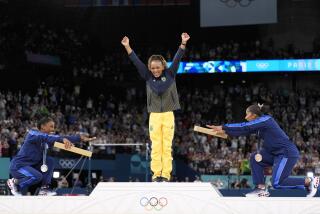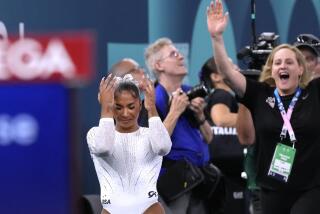Body language seems to speak louder than facial expressions
When it comes to judging a person’s emotional state, we may not rely on facial expressions as much as we think. Instead, it’s body language that tells the story.
Of course, it’s easy to tell the difference between a wide grin and a pouty frown. But according to a study published Thursday in the journal Science, the facial expressions that go along with moments of intense celebration or frustration, success or failure, may be harder to parse than the accompanying body language.
It’s common wisdom among psychologists that people have a remarkable ability to perceive emotion in facial expressions. But according to the new study, carried out by a team led by Hillel Aviezer of Hebrew University in Jerusalem, most of the studies have focused on highly curated collections of faces making forced facial expressions. When studies have used more natural facial expressions, they have tended not to focus on what the authors call the “transient emotional peak” -- that exact moment where things went so right or so wrong.
Are our facial expressions equally telling in such moments? To answer this question, Aviezer and his team collected a selection of photos of professional tennis players as they either won or lost an important point (unfortunately, their grunting was not under study).
When the researchers showed people just the faces from the photos, they were unable to determine whether the player had won or lost the point. But when they removed the faces and left the bodies, people could easily pick out the winners from the losers.
Those results suggest that facial expressions are not always the best indicators of emotion -- sometimes body language does a better job. But does body language actually change the way a face is perceived?
To test this, the researchers conducted a rather odd experiment. First, they Photoshopped the faces of winning players onto the bodies of losing ones, and vice versa. Then, instead of asking participants to rate the images, they asked them to mimic the player’s face with their own. When a winning face was put onto a losing body, the participants actually mimicked a much sadder-looking face than the one they were seeing. The opposite was true of a losing face put onto a winning body.
The researchers propose two explanations for facial expressions, in the most intense of moments, seeming to do us little good. One is that the musculature simply isn’t made for such intensity: “Much like speakers blaring at maximum volume,” they write, “the quality of the facial signal becomes degraded and noisy.” Another explanation is that what we feel is actually quite similar in brief moments of overwhelming emotion, and that happiness or sadness comes later.
If that’s the case, it means that our faces aren’t failing us at all.
Return to the Science Now blog.






